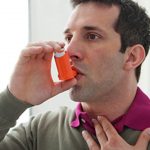
Hospital coffee machines have received some side-eye as a potential source of spreading infection, but a new study debunks the belief. “To our great relief…a general ban on coffee makers doesn’t seem necessary,” concluded researchers led by Dr. Sarah Victoria Walker, head of the Institute for Clinical Microbiology and Hospital Hygiene in Ludwigsburg, Germany. For their study, German researchers swabbed 25 automatic capsule coffee makers and espresso machines. Of the machines, 17 were from break rooms and offices in a university hospital in Cologne, Germany, and the other eight were in the homes of staff members. All of the coffee makers had been in use for at least a year. Researchers swabbed them in five specific places – the drip tray, the outlet, the buttons, the handle of the water tank and the inside of the water tank. The researchers focused on what the World Health Organization calls its high-priority ESKAPE pathogens — Enterococcus faecium, Staphylococcus aureus, Klebsiella pneumoniae, Acinetobacter baumannii, Pseudomonas aeruginosa, and Enterobacter species. Those bacteria all pose an increasing threat because they are antibiotic-resistant and can lead to fatal blood infections in a hospital setting. Unsurprisingly, bacterial growth was detected on every coffee machine. What’s more, hospital machines were about three times as heavily colonized with microbes as home machines, with 360 strains isolated from 72 swabs compared to 135 strains from… read on > read on >


















